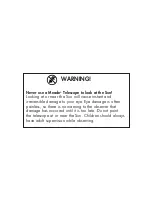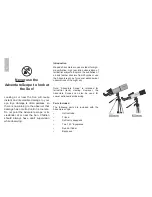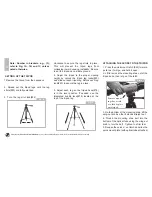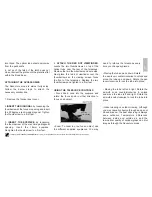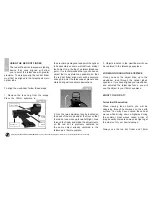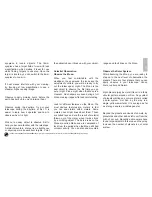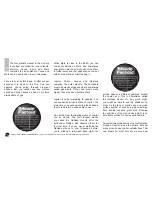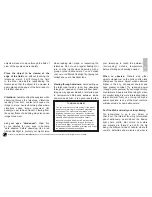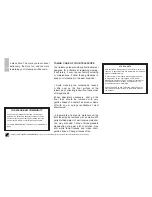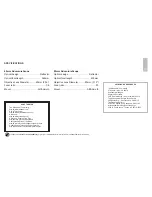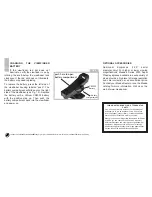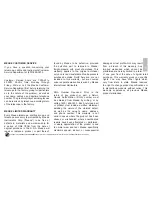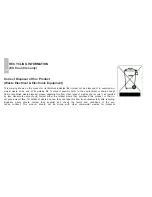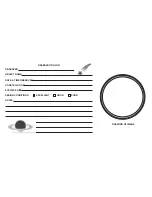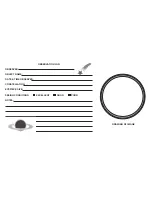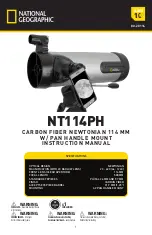
your telescope to reach the ambient
(surrounding) outside temperature
before starting an observing session.
When to observe:
Planets and other
objects viewed low on the horizon often lack
sharpness the same object, when observed
higher in the sky, will appear sharper and
have greater contrast. Try reducing power
(change your eyepiece) if your image is fuzzy
or shimmers. Keep in mind that a bright, clear,
but smaller image is more interesting than a
larger, dimmer, fuzzy one. Using too high a
power eyepiece is one of the most common
mistakes made by new astronomers.
Surf the Web and visit your local library:
We recommend to go to your library or
check out the internet for more information
about astronomy. Learn about the basics:
light years, orbits, star colors, how stars
and planets are formed, red shift, the big
bang, the different kinds of nebula, what are
comets, asteroids and meteors and what is
Looking at or near the
Sun
will cause
irreversible
damage to your eye. Do not point this telescope at or near the Sun. Do not look through the telescope as it is moving.
11
objects will seem to move through the field of
view of the eyepiece more rapidly.
Place the object to be viewed at the
edge of the field
and, without touching the
telescope, watch it drift through the field
to the other side before repositioning the
telescope so that the object to be viewed is
again placed at the edge of the field, ready to
be further observed.
Vibrations:
Avoid touching the eyepiece while
observing through the telescope. Vibrations
resulting from such contact will cause the
image to move. Avoid observing sites where
vibrations cause image movement (for
example, near railroad tracks). Viewing from
the upper floors of a building may also cause
image movement.
Let your eyes “dark-adapt”:
Allow five
or ten minutes for your eyes to become
“dark adapted” before observing. Use a red
filtered flashlight to protect your night vision
when reading star maps, or inspecting the
telescope. Do not use a regular flashlight or
turn on other lights when observing with a
group of other astronomers. You can make
your own red filtered flashlight by taping red
cellophane over a flashlight lens.
Viewing through windows:
Avoid setting up
the telescope inside a room and observing
through an opened or closed window pane.
Images may appear blurred or distorted due
to temperature differences between inside
and outside air. Also, it is a good idea to allow
TOO MUCH POWER?
Can you ever have too much power? If the type of
power you’re referring to is eyepiece magnification,
yes you can! The most common mistake of the
beginning observer is to “overpower” a telescope
by using high magnifications which the telescope’s
aperture and atmospheric conditions cannot
reasonably support. Keep in mind that a smaller,
but bright and well-resolved image is far superior
to one that is larger, but dim and poorly resolved.
Powers above 400x should be employed only under
the steadiest atmospheric conditions.


